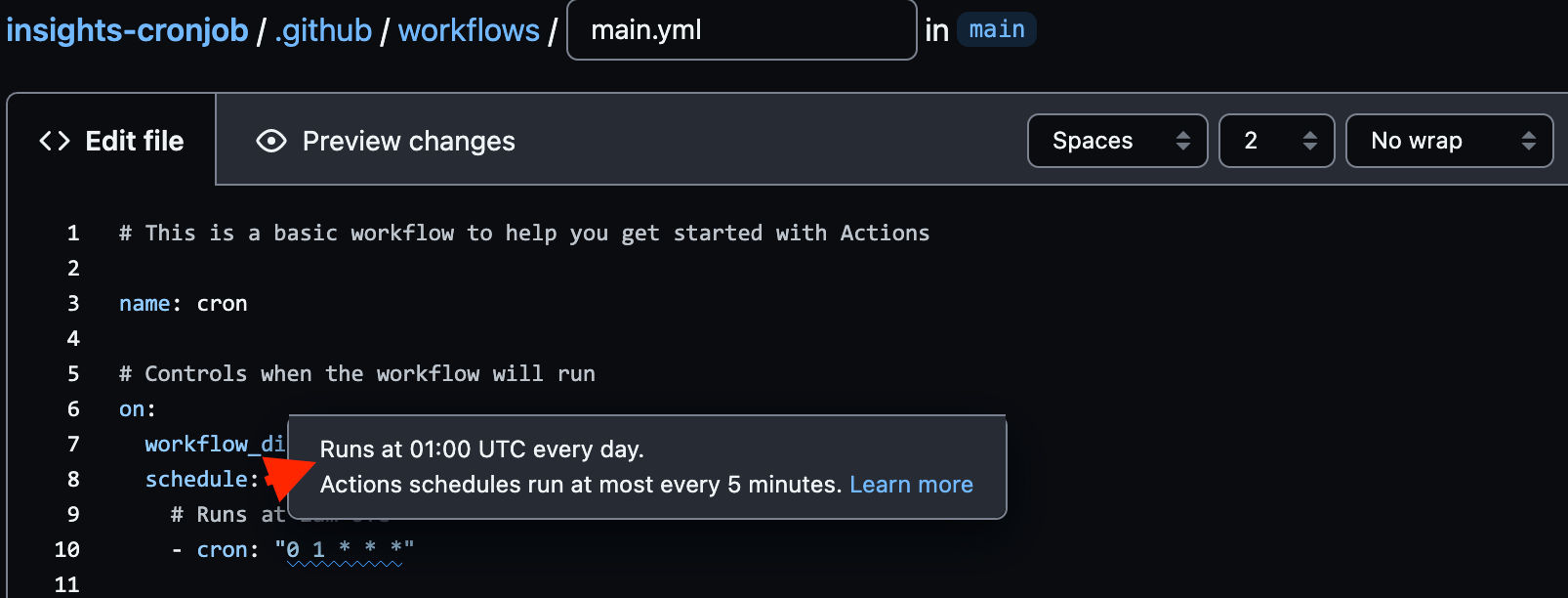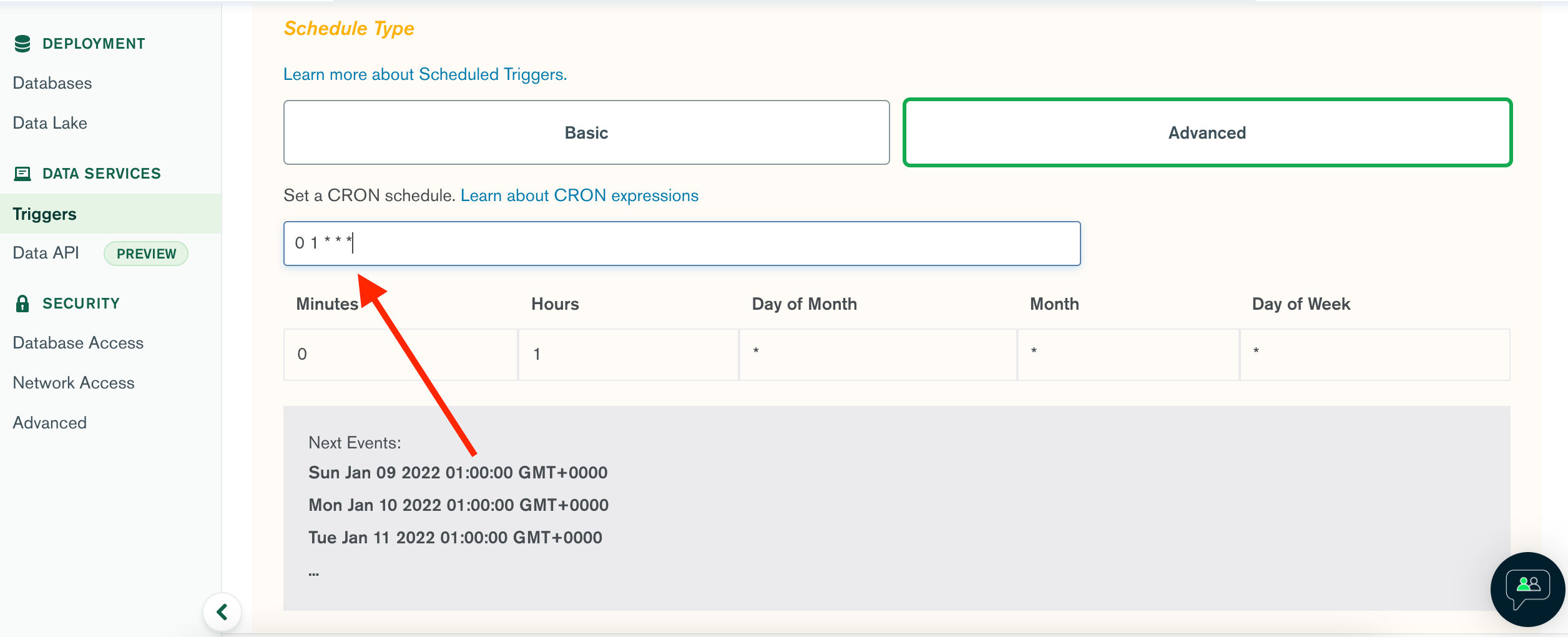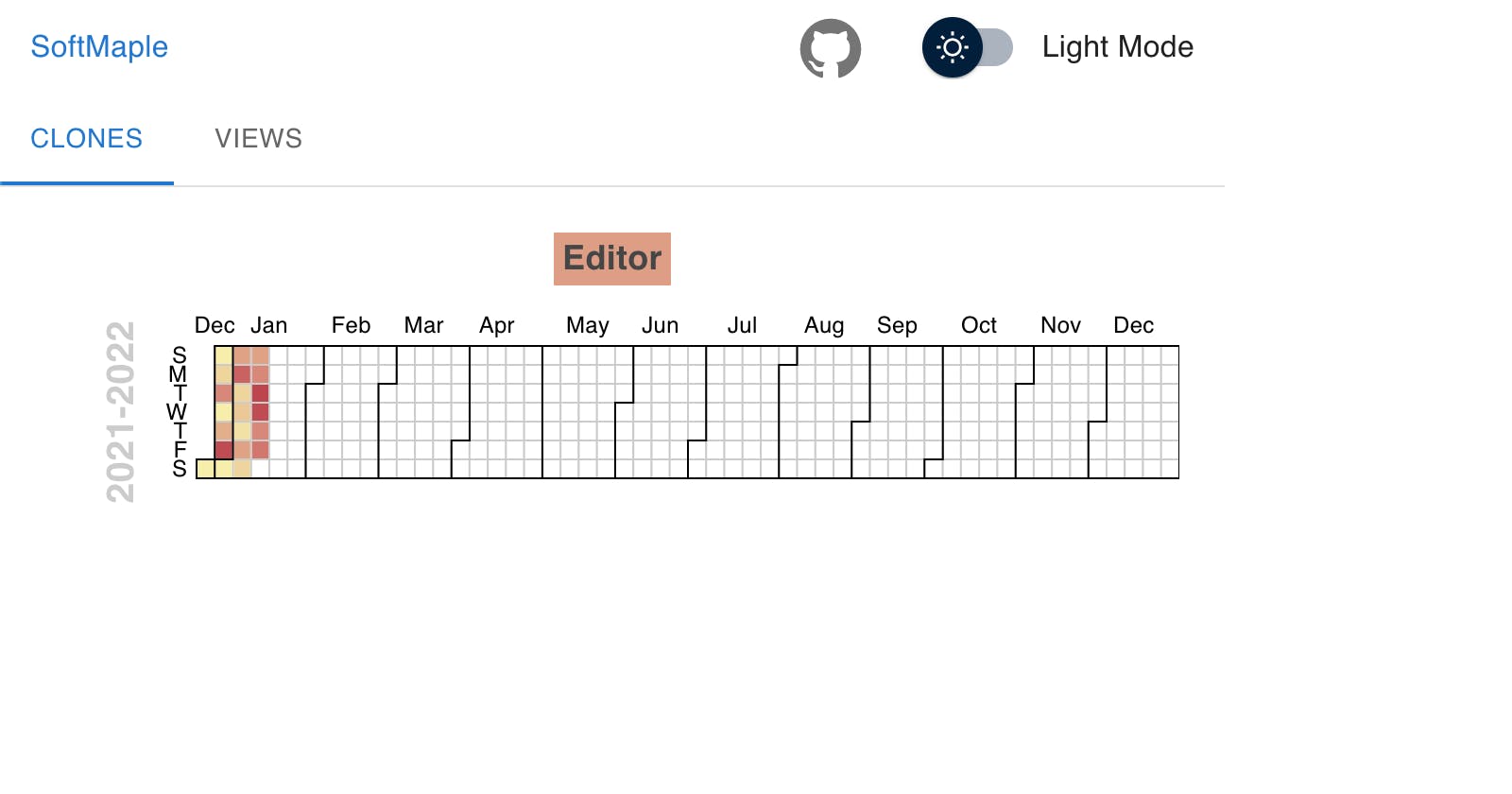Recently, I made a project to generate \(\LaTeX\) sourcecode for better paper typesetting:
The situation is that the github just saves the latest 14 days repo clones and views. What I want is to make a dashboard to view all the data per day. For me, CRON job is better.
I attempted github actions for the first time,
but its schedule is not precise, just as the below screenshots show:


It delayed about 1 hour, so I think there is a better way to trigger the event precisely.
Thanks for MongoDB Atlas, it gives me a new approach to schedule CRON job, that's Atlas Triggers.
Implementation
Firstly, to store the data, we need to call github API to retrieve clones and views. we will use an npm dependency called @octokit/core. Before using it, add it to dependencies:

const { Octokit } = require("@octokit/core"); // do not forget this.
async function callOctokit(route, owner, repo) {
const octokit = new Octokit({ auth: OCTOKIT_TOKEN });
return await octokit.request(route, { owner, repo });
}
async function getClones(collection, owner, repo) {
try {
const { status, data } = await callOctokit(
"GET /repos/{owner}/{repo}/traffic/clones",
owner,
repo
);
const { clones } = data;
// console.log(clones);
} catch(err) {
throw new Error("Error fetching clones: ", err.message, owner, repo);
}
}
async function getViews(collection, owner, repo) {
try {
const { status, data } = await callOctokit(
"GET /repos/{owner}/{repo}/traffic/views",
owner,
repo
);
const { views } = data;
// console.log(views);
} catch(err) {
throw new Error("Error fetching views: ", err.message, owner, repo);
}
}
It works. Next, we need to store the data, but which should we store? I want to update the data in Front End per day, so we just trigger it and store the 'yesterday' clones and views, so we need to implement a util function to get yesterday's data.
There is an example at MongoDB Atlas: scheduled-triggers
Notice:
dayjsis also a way to determine whether a date is yesterday.
But we need to set the date hour from '7' to '0' for comparing with github response data timestamp, see more details here: docs.github.com/en/rest/reference/repositor..
function getToday() {
return setDaybreak(new Date());
}
function getYesterday() {
const today = getToday();
const yesterday = new Date(today);
yesterday.setDate(today.getDate() - 1);
// console.log(yesterday);
// we just need the timestamp as this format: YYYY-MM-DD
return yesterday.toISOString().split('T')[0];
}
function setDaybreak(date) {
date.setHours(0); // modified original '7'.
date.setMinutes(0);
date.setSeconds(0);
date.setMilliseconds(0);
return date;
}
and then modify getClones and getViews functions.
async function getClones(collection, owner, repo) {
try {
const { status, data } = await callOctokit(
"GET /repos/{owner}/{repo}/traffic/clones",
owner,
repo
);
const { clones } = data;
// console.log(clones);
const latestData = clones[clones.length - 1];
const shouldUpdate = latestData.timestamp.split("T")[0] === getYesterday();
if (shouldUpdate) {
await collection.insertOne({ name: repo, ...latestData });
console.log("getClones: ", repo);
} else { // Notice: if clones count is 0, it will not be returned from the api.
await collection.insertOne({ name: repo, timestamp: new Date().toISOString(), count: 0, uniques: 0 });
}
} catch(err) {
throw new Error("Error fetching clones: ", err.message, owner, repo);
}
}
async function getViews(collection, owner, repo) {
try {
const { status, data } = await callOctokit(
"GET /repos/{owner}/{repo}/traffic/views",
owner,
repo
);
const { views } = data;
// console.log(views);
const latestData = views[views.length - 1];
// console.log(latestData.timestamp.split("T")[0], getYesterday());
const shouldUpdate = latestData.timestamp.split("T")[0] === getYesterday();
if (shouldUpdate) {
await collection.insertOne({ name: repo, ...latestData });
console.log("getViews: ", repo);
} else { // Notice: if views count is 0, it will not be returned from the api.
await collection.insertOne({ name: repo, timestamp: new Date().toISOString(), count: 0, uniques: 0 });
}
} catch(err) {
throw new Error("Error fetching views: ", err.message, owner, repo);
}
}
Finally, call the two functions as below:
exports = async function trigger() {
/*
A Scheduled Trigger will always call a function without arguments.
Documentation on Triggers: https://docs.mongodb.com/realm/triggers/overview/
Functions run by Triggers are run as System users and have full access to Services, Functions, and MongoDB Data.
Access a mongodb service:
const collection = context.services.get(<SERVICE_NAME>).db("db_name").collection("coll_name");
const doc = collection.findOne({ name: "mongodb" });
Note: In Atlas Triggers, the service name is defaulted to the cluster name.
Call other named functions if they are defined in your application:
const result = context.functions.execute("function_name", arg1, arg2);
Access the default http client and execute a GET request:
const response = context.http.get({ url: <URL> })
Learn more about http client here: https://docs.mongodb.com/realm/functions/context/#context-http
*/
const db = context.services.get("Insights").db("insights");
const clones = db.collection("clones");
const views = db.collection("views");
let success = true,
error = null;
try {
await getClones(clones, "SoftMaple", "Editor");
await getViews(views,"SoftMaple", "Editor");
} catch(err) {
error = err.message;
success = false;
}
return {
success,
error
};
}
The last step: do not forget to set CRON time


